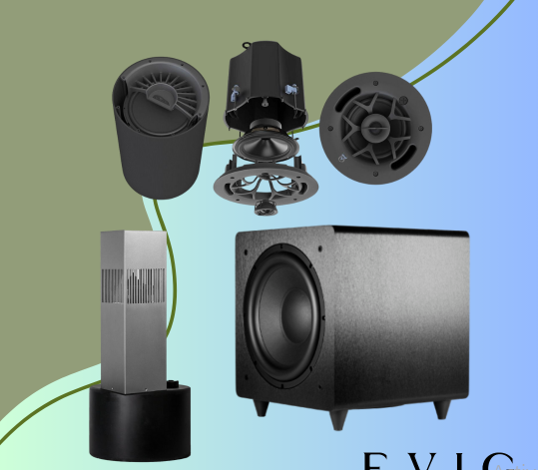Essential Tips for Selecting a Nickel Alloys Materials Supplier

Selecting the right supplier for nickel alloys materials is a critical decision that can significantly impact the quality and performance of your final products. Nickel alloys are widely used in various industries, including aerospace, automotive, chemical processing, and electronics, due to their excellent corrosion resistance, high-temperature strength, and durability. Ensuring that you partner with a reliable and reputable supplier is essential for maintaining the integrity of your production process. Here are some essential tips to guide you in selecting a nickel alloys materials supplier.
1. Assess the Supplier’s Reputation and Experience
The first step in choosing a nickel alloys materials supplier is to assess their reputation and experience in the industry. A supplier with a solid track record and extensive experience is more likely to provide high-quality materials consistently. Look for suppliers who have been in business for several years and have a history of delivering reliable products to satisfied customers. You can check online reviews, ask for references, and seek recommendations from industry peers to gauge the supplier’s reputation.
2. Verify Quality Standards and Certifications
Quality is paramount when it comes to nickel alloys. Ensure that the supplier adheres to stringent quality control standards and holds relevant certifications. Certifications such as ISO 9001 indicate that the supplier follows internationally recognized quality management systems. Additionally, suppliers should provide material test reports (MTRs) and Nickel Alloys Materials Supplier certificates of compliance (CoCs) to verify the chemical composition and mechanical properties of the nickel alloys they supply. These documents ensure that the materials meet the required specifications and industry standards.
3. Evaluate Product Range and Availability
A reliable nickel alloys materials supplier should offer a wide range of products to meet your specific needs. Different applications require different types of nickel alloys, such as Inconel, Monel, Hastelloy, and others. Assess the supplier’s product catalog to ensure they can provide the specific alloy grades and forms (e.g., bars, sheets, wires) you require. Additionally, consider the supplier’s inventory levels and lead times. A supplier with a robust inventory and efficient supply chain can provide timely deliveries and minimize production delays.
4. Consider Technical Support and Expertise
Technical support and expertise are crucial factors in selecting a nickel alloys materials supplier. The supplier should have knowledgeable staff who can provide guidance on material selection, processing techniques, and application-specific requirements. Technical support can help you optimize your production process, troubleshoot issues, and ensure that you are using the most suitable materials for your needs. Look for suppliers who offer technical resources, such as datasheets, application guides, and expert consultations.
5. Assess Pricing and Value for Money
While price should not be the sole determining factor, it is essential to consider the cost-effectiveness of the supplier’s offerings. Compare prices Incoloy 825 Strip from multiple suppliers to ensure you are getting competitive rates without compromising on quality. Consider the total value for money, including factors such as material quality, delivery reliability, and customer service. A slightly higher price may be justified if the supplier provides superior quality and dependable service, ultimately reducing your overall production costs and risks.
6. Check Delivery and Logistics Capabilities
Timely delivery is critical to maintaining smooth production schedules. Assess the supplier’s delivery and logistics capabilities to ensure they can meet your deadlines consistently. Consider factors such as shipping options, packaging, and handling practices. A supplier with efficient logistics and a track record of on-time deliveries can help you avoid production delays and ensure that your operations run smoothly.
7. Review Customer Service and Communication
Effective communication and responsive customer service are essential for a successful supplier relationship. Choose a supplier who values clear and open communication, responds promptly to inquiries, and addresses concerns efficiently. Good customer service can make a significant difference in resolving issues quickly and ensuring a positive experience throughout the procurement process. Look for suppliers who prioritize customer satisfaction and are willing to go the extra mile to meet your needs.
8. Request Samples and Conduct Testing
Before committing to a supplier, request samples of the nickel alloys materials you intend to purchase. Conduct thorough testing to verify the material’s quality, performance, and suitability for your application. Testing can include chemical analysis, mechanical testing, and corrosion resistance evaluations. Reviewing sample results helps ensure that the supplier’s materials meet your specifications and perform as expected in real-world conditions.
9. Evaluate Long-Term Partnership Potential
When selecting a nickel alloys materials supplier, consider the potential for a long-term partnership. A reliable supplier who understands your business and consistently meets your needs can become a valuable partner in your supply chain. Evaluate the supplier’s ability to scale with your business, adapt to changing requirements, and provide ongoing support. Building a strong, long-term relationship with a trusted supplier can lead to improved collaboration, cost savings, and enhanced product quality over time.
Conclusion
Selecting the right nickel alloys materials supplier is a critical decision that requires careful consideration of various factors. By assessing the supplier’s reputation, quality standards, product range, technical support, pricing, delivery capabilities, customer service, and partnership potential, you can make an informed choice that ensures the success and reliability of your production processes. Prioritizing these essential tips will help you find a supplier who not only meets your immediate needs but also contributes to the long-term success of your business.
Read More :bryant the junkman

